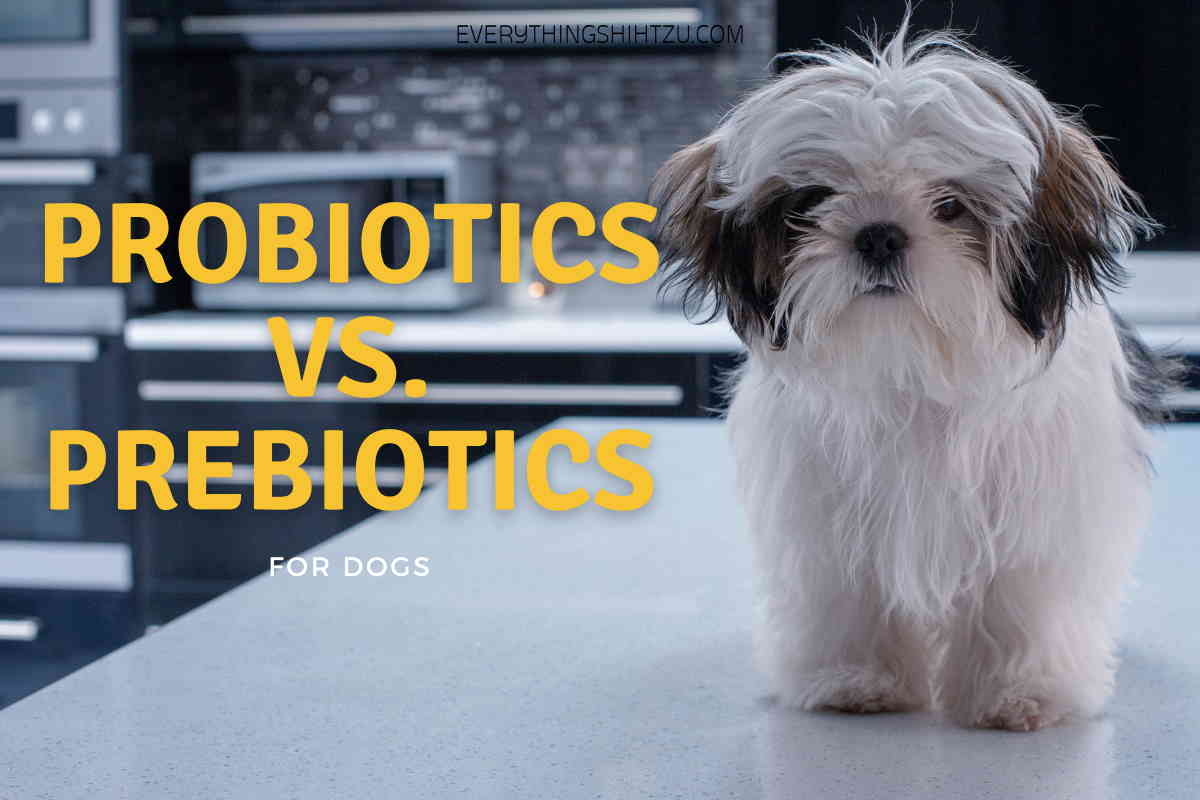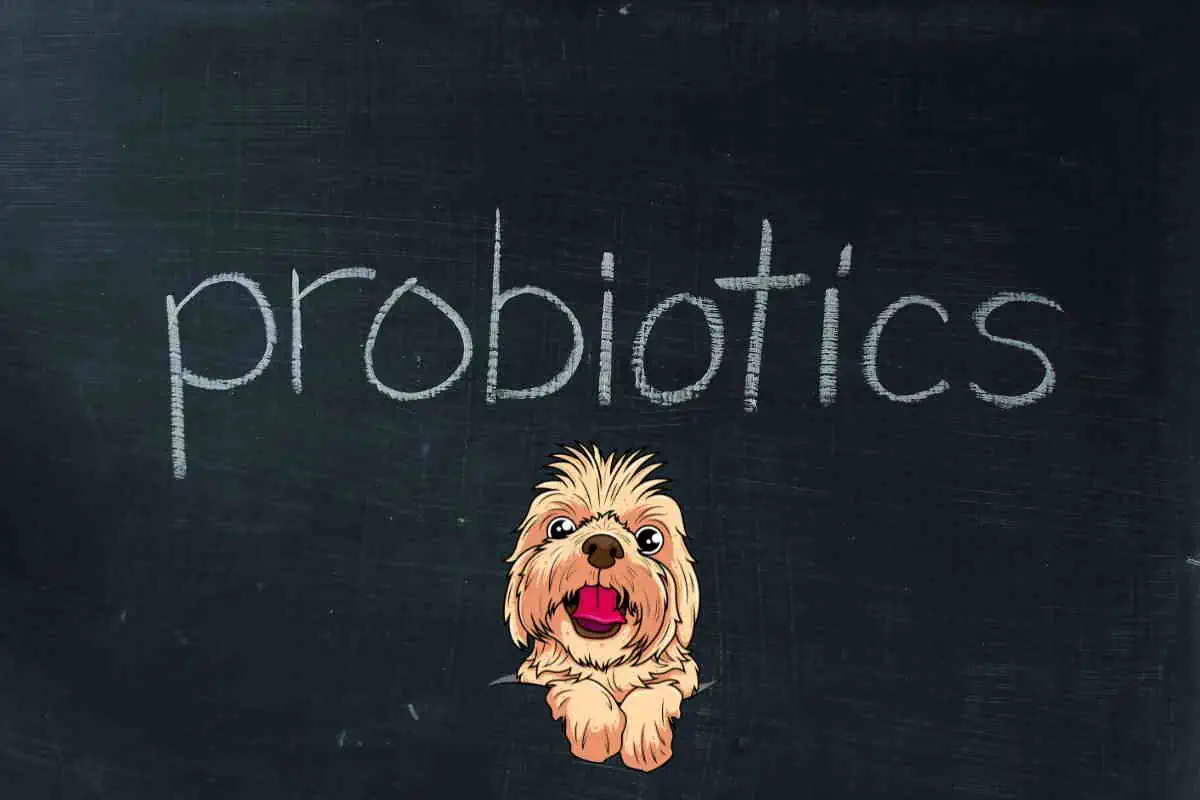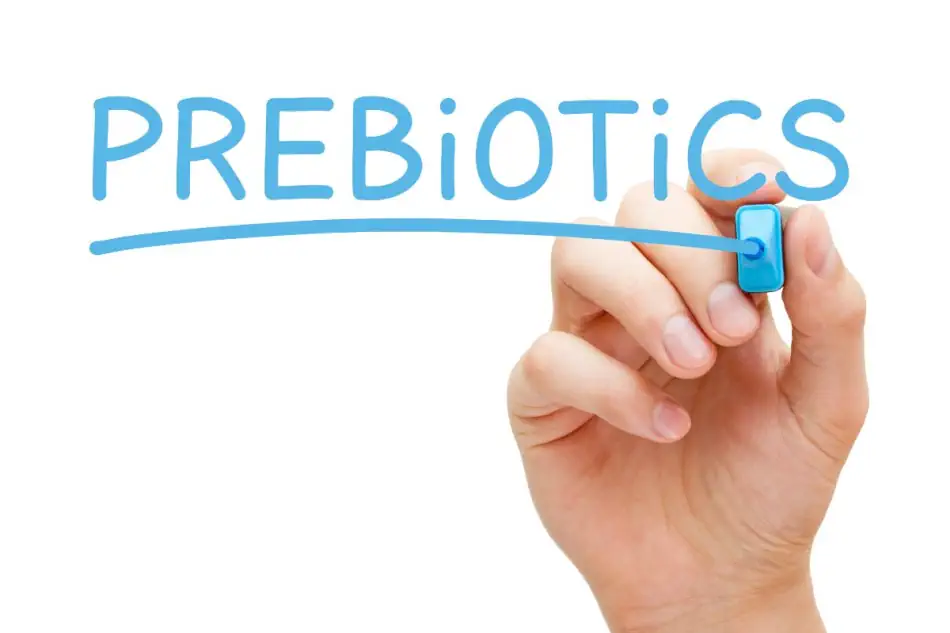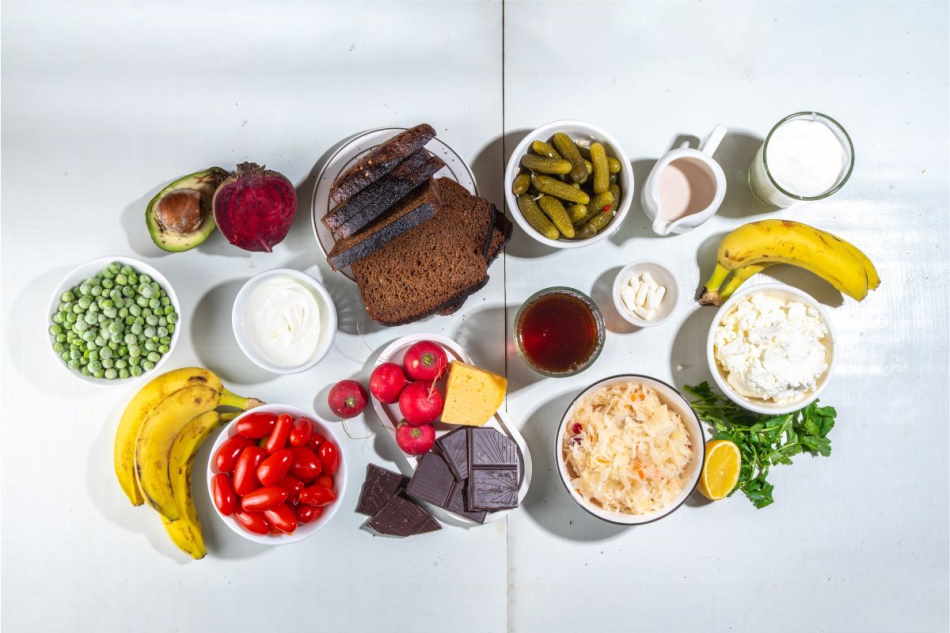Probiotics vs Prebiotics For Dogs
By Everything Shih Tzu September 1, 2022
This post may contain affiliate links. Read privacy & disclosure policy for info
If you've done research on how to make your dog as healthy as possible, you've likely come across the terms "prebiotics" and "probiotics."

Probiotics and prebiotics are two types of good bacteria that are essential for a healthy dog. They work together to keep your dog's digestive system healthy. Although both probiotics and prebiotics are beneficial, they serve different purposes in the body.
Both probiotics and prebiotics are considered "good" bacteria because they help maintain a balanced internal environment in your pet.
When the balance of good versus bad bacteria becomes unbalanced, it can cause a number of negative side effects, including diarrhea, gas, bloating, vomiting, and other unpleasant consequences.
Luckily, you can easily bring the ratio back into balance by supplementing your dog's diet with probiotic or prebiotic supplements.
What Is the Difference Between Prebiotics and Probiotics for Dogs
You've come here to find out which one is better for your dog's specific health needs.
However, you may not really understand what a prebiotic and probiotic are.
So, before we get into what they are, it is important to know that neither prebiotics nor probiotics are inherently bad for your dog; in fact, they're actually very beneficial for your dog's diet; they just perform different functions in your dog's body.
Both can come as a supplement, food, or a yummy treat for dogs with trouble taking pills.
Now that you know a little bit about some of their similarities let's get into what a probiotic and a prebiotic are and how they differ from one another.
Probiotics

Probiotics are good, naturally occurring live bacteria that are found in your dog's digestive tract and in some dietary supplements and foods.
Although the thought of there being bacteria living in your dog's stomach may be horrifying to you, it's important to recognize that we all have live bacteria in our bodies and that some bacteria, like those found in probiotics, are beneficial to both you and likewise your dog's health.
Probiotics are good for dogs because they improve digestion and build their immune systems so they can fight off infections.
There are also other benefits of probiotics, such as:
- Reduces stress and anxiety
- Improves food allergies
- Improves your dog's coat quality
- Aids with urinary tract infections
- Helps eliminate doggy breath
Simply put, probiotics work to keep your dog's bodies in a healthy balance so they can continue to thrive!
Prebiotics

Prebiotics are a type of fiber that supports healthy bacteria, keeping the body from being overrun with harmful bacteria.
Think of prebiotics as food that feeds the probiotics (good bacteria), so they can stay strong and healthy, thus preventing harmful bacteria from taking over.
There are different types of fiber, but prebiotics is considered soluble fibers, which is a fancy way of saying they are broken down to make the food for the probiotics.
Your dog needs prebiotics to sustain a healthy immune and digestive system.
Prebiotics strengthen good bacteria so your dog can be in the best health possible.
While prebiotics benefits probiotics, they also have benefits on their own such as:
- Promote immunity in puppies
- Helps with the absorption of nutrients in the dog's body
- Ferments food faster, making it easier to digest food
Prebiotics and probiotics are both essential in aiding digestive tracts in dogs but are different in a couple of ways:
- Probiotics are live bacteria, whereas prebiotics act as food for the former.
- Prebiotics are found in fibrous foods, and probiotics are found in fermented foods.
Are Prebiotics Better Than Probiotics for a Dog?
This is a good question, and the answer will vary depending on the specifics of your dog's needs.
Although probiotics do not require prebiotics to function, the effectiveness of probiotics is enhanced when given alongside prebiotics.
It's not as simple as picking the one that sounds better, though; there are several factors to consider first.
For instance, while probiotics might be beneficial, not all types may be required for your dog's well-being.
Some common probiotic strains include the following:
- Bifidobacterium lactis
- Bifidobacterium breve
- Enterococcus faecium
- Lactobacillus casei
- Lactobacillus acidophilus
You must make sure that you know what strain is the right one for your dog's specific needs.
In general, your dog may benefit from a probiotic, prebiotic, or both; however, it's best to consult your vet before giving your dog any kind of supplement.
Probiotics can also be found in dairy products, but if your dog is allergic to dairy, it may not be a good idea to give it to them.
What Are Some Foods With Prebiotics and Probiotics That Dogs Can Eat?

Let's face it, life would be a little easier if our dogs didn't dislike taking pills. For some, it's not an issue, but it's a lot more complicated for many others.
The great thing about prebiotics and probiotics is that they don't always have to be in the form of a pill.
Many of them can be found in everyday foods safe for humans and dogs to consume.
However, if you want to include these in your dog's diet in a more natural way, there are several different types of foods that dogs can eat to get those added benefits.
The following is a list of foods that can be given to dogs that contain probiotics or prebiotics:
- Yogurt (plain with no added sweetener)
- Kefir
- Goat milk
- Sauerkraut
- Sweet potatoes
- Broccoli (in small quantities)
- Bananas
- Apples
Keep in mind that many of these should be given to your dog in moderation.
Still, food sources such as sweet potatoes and broccoli can be a good alternative for animals that are allergic to dairy.
You can also purchase certain dog foods that are better for your dog's digestive system and contain probiotics.
There is speculation about whether or not grain-free dog food is good for your animal.
But with that aside, sometimes grains can upset your dog's digestive system; therefore, it is suggested that if your dog has GI issues, you may want to turn to grain-free food.
In Summary - Healthy Gut, Happy Mutt

Probiotics and prebiotics can be a great addition to your dog's diet.
They play an essential role in helping to aid your dog's digestion and can be an excellent treatment option for a poor pup that is suffering from diarrhea.
While both of these play a role in helping digestion, those roles are very different from one another.
A probiotic is a live "good." bacteria. At the same time, a prebiotic is the food the probiotic needs to beat out the harmful bacteria.
Both can be added to your dog's diet without the help of the other, but some may choose to use both of them together.
While both can come in supplements or pill form, there is still hope for dogs who refuse to swallow pills.
Foods like yogurt, apples, kefir and sweet potatoes contain probiotics and prebiotics that you and your dog can benefit from.
This could be a great way to introduce these to your animals to see if it helps them.
As always, make sure that before you take the step to give your dogs any supplements or food with these ingredients, consult your veterinarian to get the green light to give them to your pet.
Once you're in the clear, you can go ahead and give them to your dog. Who knows, probiotics and prebiotics might just be what they need to get their health, and poop, in check.



